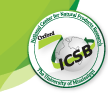Document Type
Oral Presentation
Location
Oxford Convention Center, 102 Ed Perry Boulevard Oxford, MS 38655
Event Website
https://www.oxfordicsb.org/
Start Date
25-4-2023 2:50 PM
Description
Euterpe oleracea Mart., commonly known as açaí, is among the top 40 botanicals currently used in the United States. Its presence in food products and botanical supplements is growing exponentially. To better ascertain potential açaí-drug interactions, we are analyzing the effects of açaí extracts on CYP induction and P-gp/OATP-B drug transporters. Certified organic açaí fruit powder from Mountain Rose (MR) Herbs (Eugene, OR, USA) and dietary supplement capsules containing aqueous extracts of Euterpe oleracea Mart. (açaí) fruit from Nature’s Way (Green Bay, WI, USA) and Natrol (Chatsworth, CA, USA) were obtained. The Mountain Rose powder is representative of what is present in açaí food products and was extracted in acidic methanol (AC), 95% ethanol (ET), methanol (ME), and water (AQ) individually. The Natrol and Nature’s Way capsule brands were chosen based on the 2019 Amazon Market Report and their commercial availability. These 2 açaí botanical supplements were extracted in methanol (ME) and acidic methanol (AC) individually. The lyophilized extract powders were optimized for solubility, found to be a 15% acetonitrile: 85% H2O solvent mixture. Sandwich cultured primary human hepatocytes (SCHH) were treated with a human-relevant dose concentration (2.321 ng/mL of cyanidin 3-glucoside) of the individual, standardized açaí extracts. CYP induction (CYP3A4, CYP2B6, and CYP1A2) was analyzed via RT-PCR. None of the açai extracts displayed CYP3A4, CYP2B6, or CYP1A2 induction at the human-relevant dose concentration. Additionally, the evaluation of açaí extracts on drug transporters (P-gp and OATP-B) is underway. These effects will be analyzed via RT-PCR for transcriptional induction, as well as substrate probe assays and confirmation of activity levels via LC-MS analysis. This study highlights the importance of a rigorous experimental design to assess the potential for botanical-drug interactions with açaí supplements through CYP and transporter induction.
Recommended Citation
McDonald, Kelli, "Açaí fruit pulp and supplement extracts: potential induction of CYP enzymes and P-gp/OATP-B transporters" (2023). Oxford ICSB. 3.
https://egrove.olemiss.edu/icsb/2023_ICSB/schedule/3
Publication Date
April 2023
Accessibility Status
Searchable text
Included in
Açaí fruit pulp and supplement extracts: potential induction of CYP enzymes and P-gp/OATP-B transporters
Oxford Convention Center, 102 Ed Perry Boulevard Oxford, MS 38655
Euterpe oleracea Mart., commonly known as açaí, is among the top 40 botanicals currently used in the United States. Its presence in food products and botanical supplements is growing exponentially. To better ascertain potential açaí-drug interactions, we are analyzing the effects of açaí extracts on CYP induction and P-gp/OATP-B drug transporters. Certified organic açaí fruit powder from Mountain Rose (MR) Herbs (Eugene, OR, USA) and dietary supplement capsules containing aqueous extracts of Euterpe oleracea Mart. (açaí) fruit from Nature’s Way (Green Bay, WI, USA) and Natrol (Chatsworth, CA, USA) were obtained. The Mountain Rose powder is representative of what is present in açaí food products and was extracted in acidic methanol (AC), 95% ethanol (ET), methanol (ME), and water (AQ) individually. The Natrol and Nature’s Way capsule brands were chosen based on the 2019 Amazon Market Report and their commercial availability. These 2 açaí botanical supplements were extracted in methanol (ME) and acidic methanol (AC) individually. The lyophilized extract powders were optimized for solubility, found to be a 15% acetonitrile: 85% H2O solvent mixture. Sandwich cultured primary human hepatocytes (SCHH) were treated with a human-relevant dose concentration (2.321 ng/mL of cyanidin 3-glucoside) of the individual, standardized açaí extracts. CYP induction (CYP3A4, CYP2B6, and CYP1A2) was analyzed via RT-PCR. None of the açai extracts displayed CYP3A4, CYP2B6, or CYP1A2 induction at the human-relevant dose concentration. Additionally, the evaluation of açaí extracts on drug transporters (P-gp and OATP-B) is underway. These effects will be analyzed via RT-PCR for transcriptional induction, as well as substrate probe assays and confirmation of activity levels via LC-MS analysis. This study highlights the importance of a rigorous experimental design to assess the potential for botanical-drug interactions with açaí supplements through CYP and transporter induction.
https://egrove.olemiss.edu/icsb/2023_ICSB/schedule/3


Comments
Research reported in this abstract was supported by R15AT011047 from National Center for Complementary and Integrative Health (NCCIH) and the Office of Dietary Supplements (ODS). Its contents are solely the responsibility of the authors and do not necessarily represent the official views of the NCCIH, ODS, or the National Institutes of Health.